Latinx Poetry Series at Bronx Community College
Vincent Toro’s debut poetry collection, STEREO.ISLAND.MOSAIC. (Ahsahta Press, 2016), was awarded the Poetry Society of America’s Norma Farber First Book Award and the Sawtooth Poetry Prize. He is a Poets House Emerging Poets Fellow, a New York Foundation for the Arts Fellow in Poetry, and winner of the Caribbean Writer’s Cecile de Jongh Literary Prize and Repertorio Español’s Nuestras Voces National Playwriting award. Toro is a professor at Bronx Community College, a contributing editor at Kweli Journal, a writing liaison for the Cooper Union’s Saturday Program, and participates in school programs for DreamYard and the Dodge Poetry Foundation.
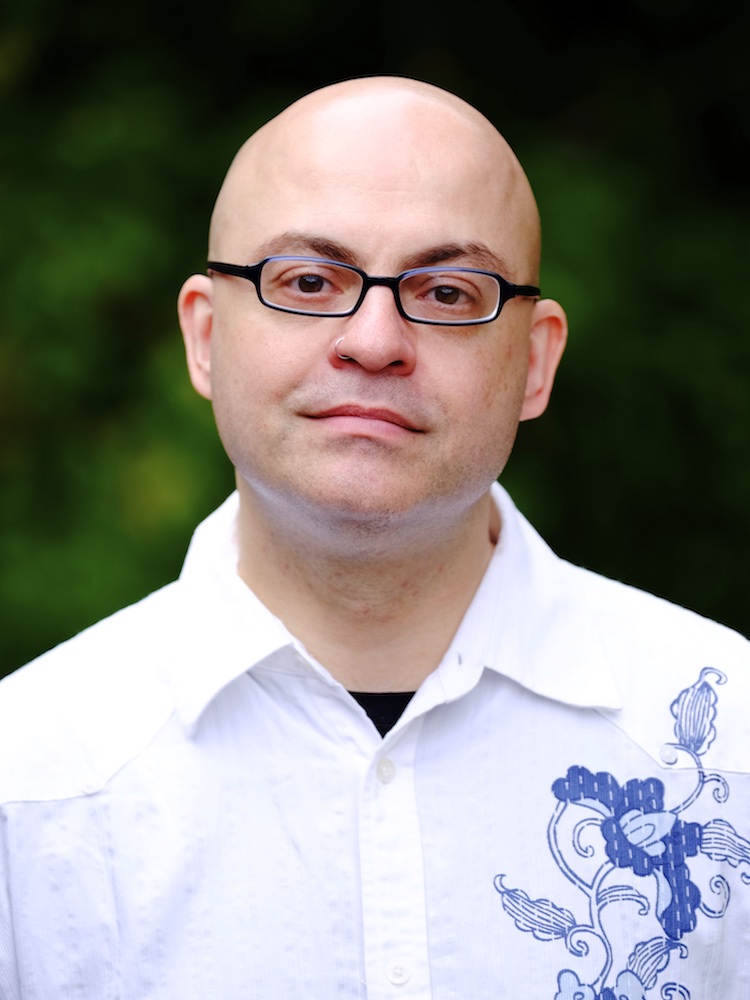 When Dr. Grisel Y. Acosta and I started the Latinx Poetry Reading Series at Bronx Community College (BCC) back in 2016, our intention was to provide the students in our Latino Literature classes the opportunity to have direct contact with some of the writers they were studying. What began simply as a means of adding dimension to our curriculums quickly became so much more.
When Dr. Grisel Y. Acosta and I started the Latinx Poetry Reading Series at Bronx Community College (BCC) back in 2016, our intention was to provide the students in our Latino Literature classes the opportunity to have direct contact with some of the writers they were studying. What began simply as a means of adding dimension to our curriculums quickly became so much more.
Ninety-six percent of the students at BCC are students of color. Sixty-three percent of that population is Latinx. A great many of these students are first or second generation immigrants. In contrast, the majority of the faculty is white, and outside of the Latino Literature classes, Latinx authors and texts are grossly underrepresented on class reading lists. This makes the school’s Latino Literature classes one of the few places in which they can find themselves, their own cultures and histories, represented in the curriculum.
The lack of access to writing by, for, and about Latinx people extends itself beyond the campus and into the Bronx. As of 2016 (when Barnes & Noble in Co-op City closed its doors), the Bronx, a territory with 1.5 million residents, has exactly zero bookstores. Even our college lacks a physical campus bookstore (it was closed during the 2017-2018 school year). The message to the students, and to the Bronx community at large, is that literature—both that which reflects their experience and any other kind—should not be considered important in their lives.
Nevertheless, our students cannot contain their excitement when they begin reading Latinx texts in their classes. In all my years as an educator, the Latino Literature classes at BCC are the only classes where the students regularly do not want to leave when time is up. Students who formerly claimed to never read anything that wasn’t assigned in a class suddenly ask me for further reading suggestions.
This enthusiasm is only amplified when we get them in a room with Latinx poets. At each of the BCC Latinx Poetry Series readings, I survey the audience to see how many of them are attending a poetry reading for the first time. As it stands, about ninety percent had never experienced a live poetry reading. Yet during these readings and the Q&A sessions that follow, they’re riveted. They keep the poets there long after the reading is over to take pictures with them, get books signed, and ask more questions. This year, after an hour, I had to drag the poets away from students so they could catch their train. Many students have asked where they can find more poetry readings afterwards.
Clearly, there is a need for these kinds of literary and cultural events at the school and in the Bronx. But because BCC has an underserved population of people of color in an underserved borough of people of color, there are no resources to support these events. It is only with the assistance of Poets & Writers that we are able to provide compensation for our guest poets. Now in its third year, the BCC Latinx Poetry Series has hosted some of the most exciting and important Latinx poets currently working in the United States. We have been visited by Darrel Alejandro Holnes, Nancy Mendez Booth, Rosebud Ben-Oni, Bonafide Rojas, Raquel Salas Rivera, Roberto Carlos Garcia, and BCC’s own Dr. Grisel Y. Acosta, who is a widely published author, associate professor in the English Department, and coorganizer of the reading series.
We are already in the early planning stages for next year’s reading. It is our hope that the series will be around for many years to come and that over time its audience will build, drawing in more members of the college and the public while helping to fulfill the need for greater support of Latinx literature in the Bronx and beyond.
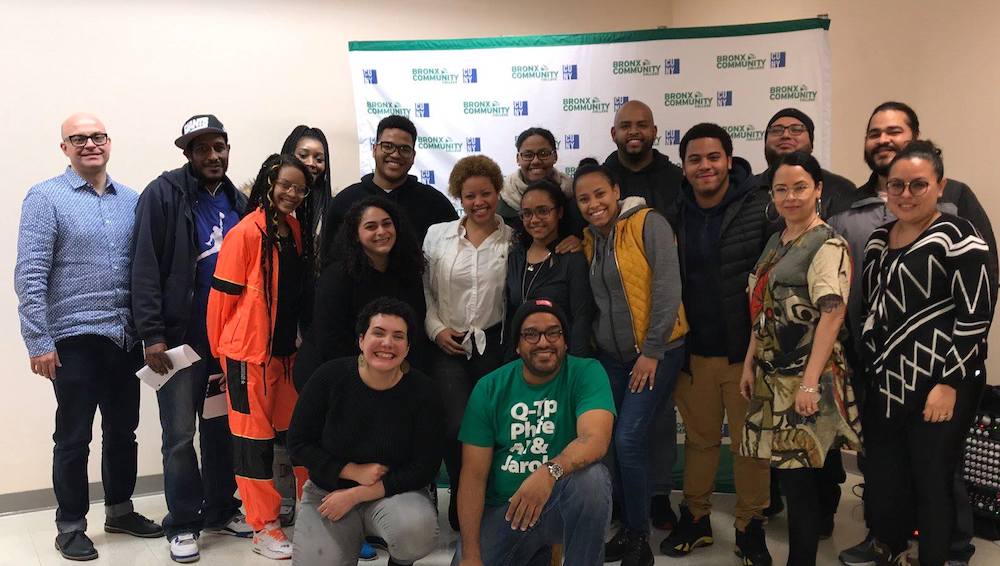
Support for the Readings & Workshops Program in New York City is provided, in part, by public funds from the New York State Council on the Arts, and the New York City Department of Cultural Affairs, with additional support from the Frances Abbey Endowment, the Cowles Charitable Trust, and the Friends of Poets & Writers.
Photos: (top) Vincent Toro (Credit: David Flores). (bottom) BCC students with Vincent Toro, Dr. Grisel Y. Acosta, and guest poets Raquel Salas Rivera and Roberto Carlos Garcia .




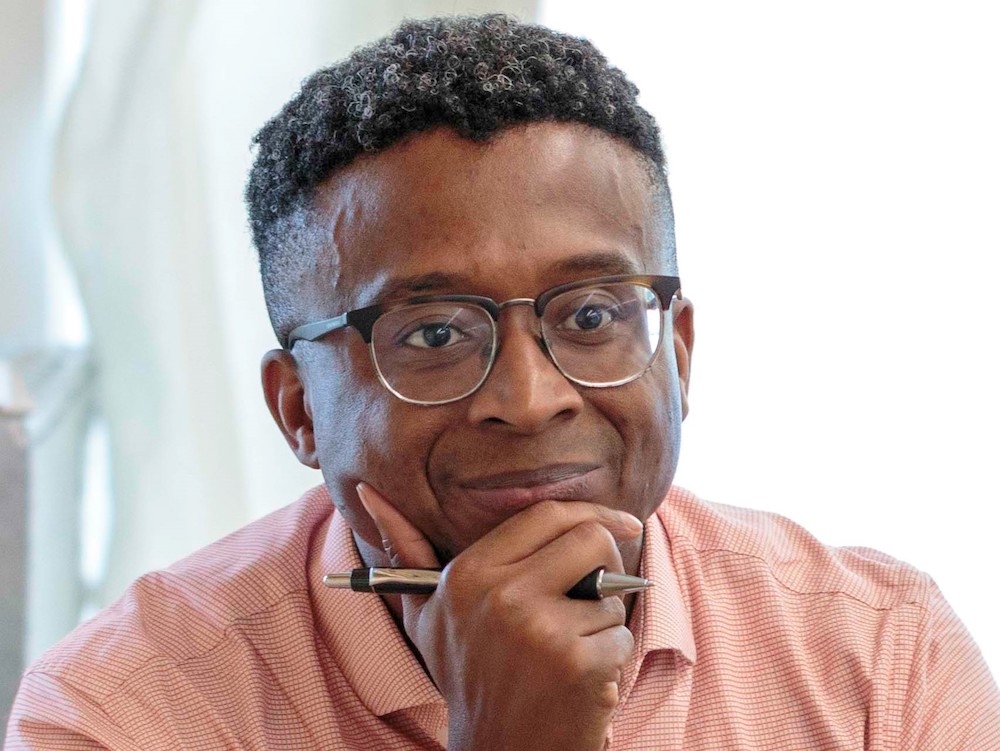 C is at least a full head taller than I am. His cropped blond hair looks even more yellow under the fluorescent lights of the library. I’ve mispronounced the word “thaumaturgic” while reading the class our example poem “canvas and mirror” by Evie Shockley. As soon as the word incorrectly leaves my mouth, C nearly yells to correct me and pronounce the word correctly. I thank him and keep it moving, trying not to smile and steal peeks at C following diligently along as we continue through the poem.
C is at least a full head taller than I am. His cropped blond hair looks even more yellow under the fluorescent lights of the library. I’ve mispronounced the word “thaumaturgic” while reading the class our example poem “canvas and mirror” by Evie Shockley. As soon as the word incorrectly leaves my mouth, C nearly yells to correct me and pronounce the word correctly. I thank him and keep it moving, trying not to smile and steal peeks at C following diligently along as we continue through the poem.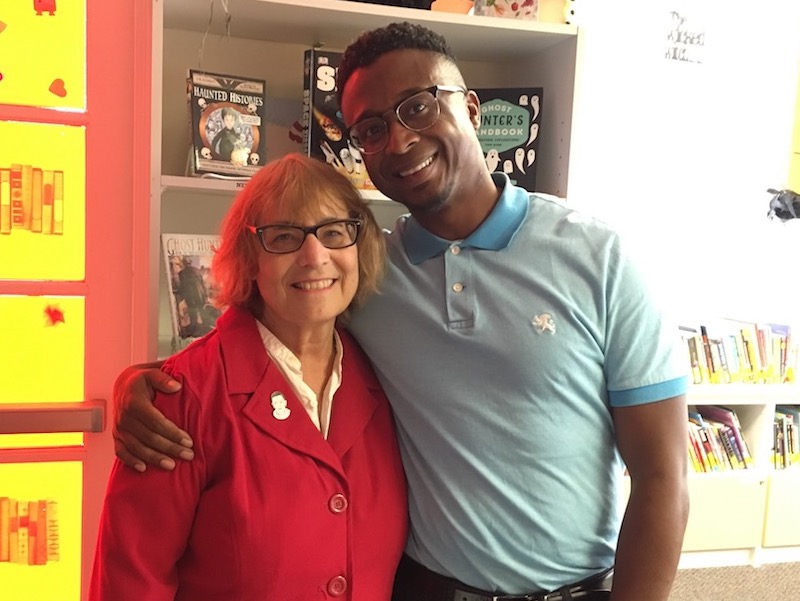 Every week, in both of the sessions he attends, C tries my assignments and writes. He usually writes very short poems, so in the second session on Halloween, I challenged C to write a poem that filled a full page in his small notebook, which has the character Dory from Finding Nemo on its cover. C gladly accepted my challenge and began scribbling. I watched him as I walked around the room to help other students with the assignment. All of the focus in his body was applied to this assignment. He never looked up from his journal. I had never seen him write for this long without talking to me or other students.
Every week, in both of the sessions he attends, C tries my assignments and writes. He usually writes very short poems, so in the second session on Halloween, I challenged C to write a poem that filled a full page in his small notebook, which has the character Dory from Finding Nemo on its cover. C gladly accepted my challenge and began scribbling. I watched him as I walked around the room to help other students with the assignment. All of the focus in his body was applied to this assignment. He never looked up from his journal. I had never seen him write for this long without talking to me or other students. On December 20 the
On December 20 the 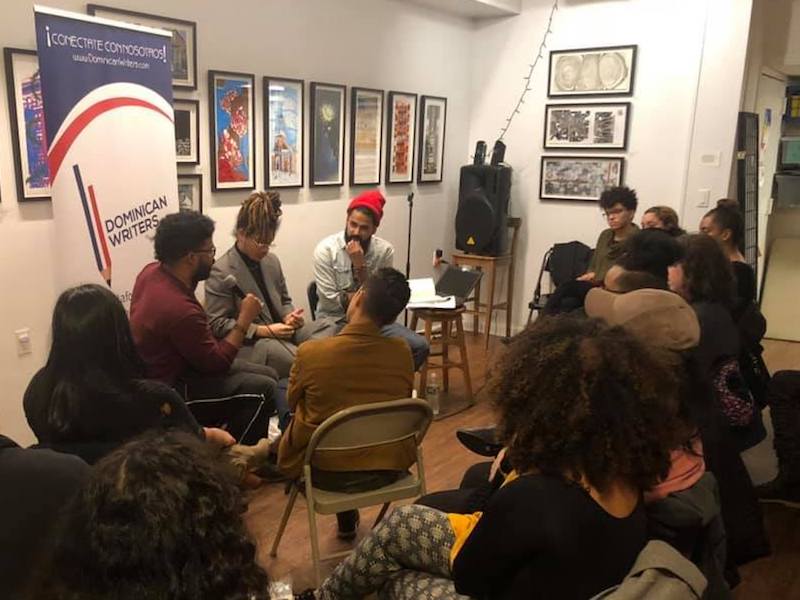 Randall’s debut poetry collection, Refuse (University of Pittsburgh Press, 2018), won the 2017 Cave Canem Poetry Prize. While browsing the shelves of new and used books before the event, I spoke briefly to Randall, who was wearing a burgundy T-shirt with white bold letters that spelled out the word REPARATIONS. I asked what reparations meant to him and he replied: “It means to me, a redress of grievances, a possibility for a new beginning.... There are certain ways in which we’ve been deprived; even of the ability to begin narratives where we would like to begin them. It means the ability to revise history.”
Randall’s debut poetry collection, Refuse (University of Pittsburgh Press, 2018), won the 2017 Cave Canem Poetry Prize. While browsing the shelves of new and used books before the event, I spoke briefly to Randall, who was wearing a burgundy T-shirt with white bold letters that spelled out the word REPARATIONS. I asked what reparations meant to him and he replied: “It means to me, a redress of grievances, a possibility for a new beginning.... There are certain ways in which we’ve been deprived; even of the ability to begin narratives where we would like to begin them. It means the ability to revise history.”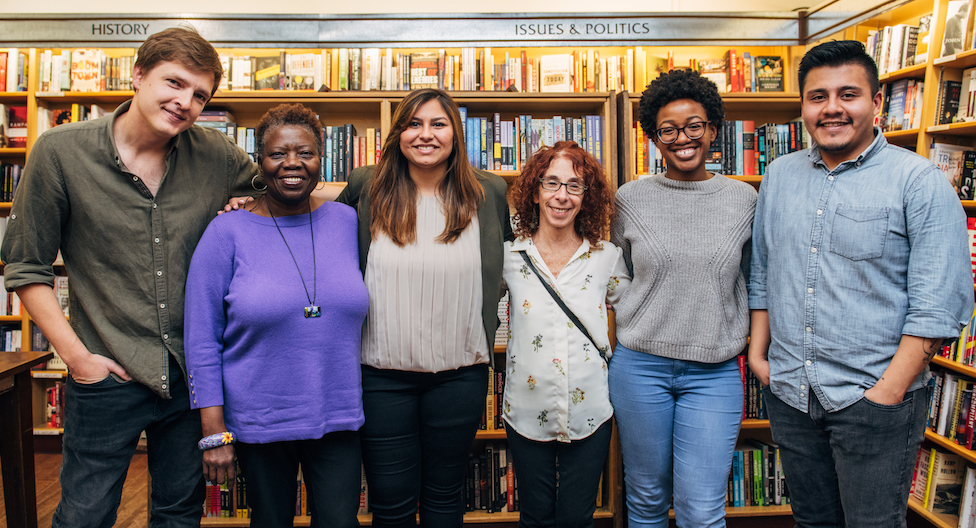
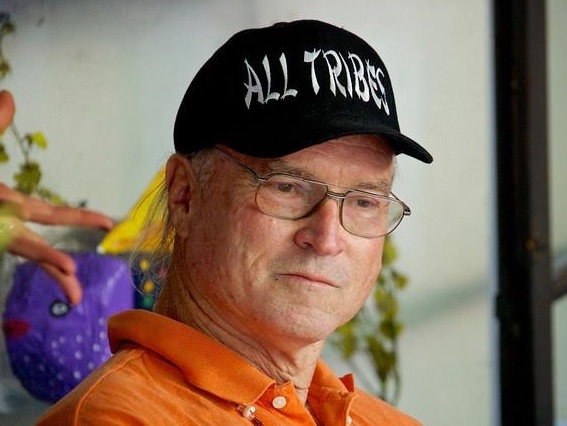 On November 18 I facilitated a workshop at San Diego Writers, Ink called Gems of 10 Imagists: Masterpiece Poems of Imagism. The course description began with a quote from Wallace Stevens: In poetry, you must love the words, the ideas and the images and rhythms with all your capacity to love anything at all. This quote captures the essence of how I teach: Write from your heart. Don’t let your editor write your poem. Let your poet write the poem. Then, as many have said, turn it over to your (internal) editor so the craft can begin.
On November 18 I facilitated a workshop at San Diego Writers, Ink called Gems of 10 Imagists: Masterpiece Poems of Imagism. The course description began with a quote from Wallace Stevens: In poetry, you must love the words, the ideas and the images and rhythms with all your capacity to love anything at all. This quote captures the essence of how I teach: Write from your heart. Don’t let your editor write your poem. Let your poet write the poem. Then, as many have said, turn it over to your (internal) editor so the craft can begin.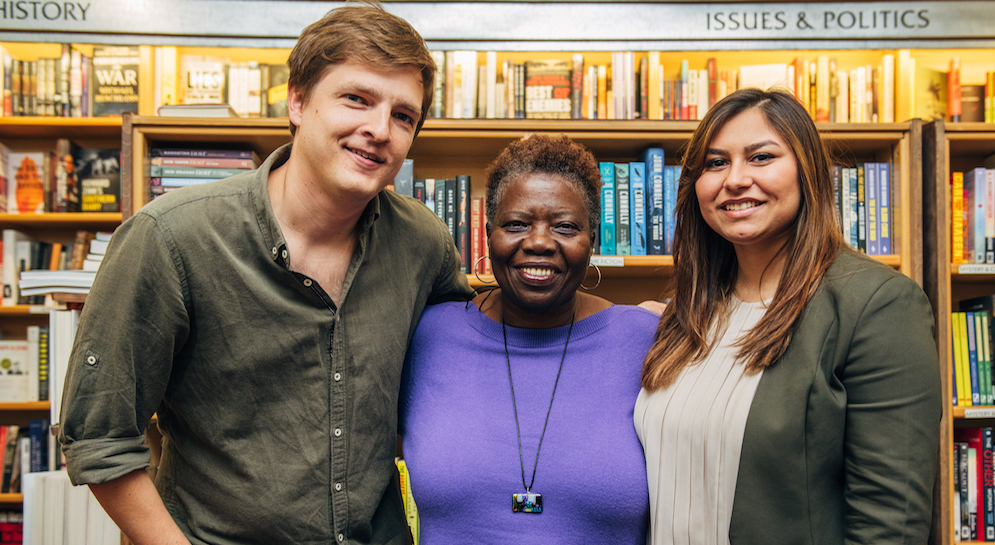
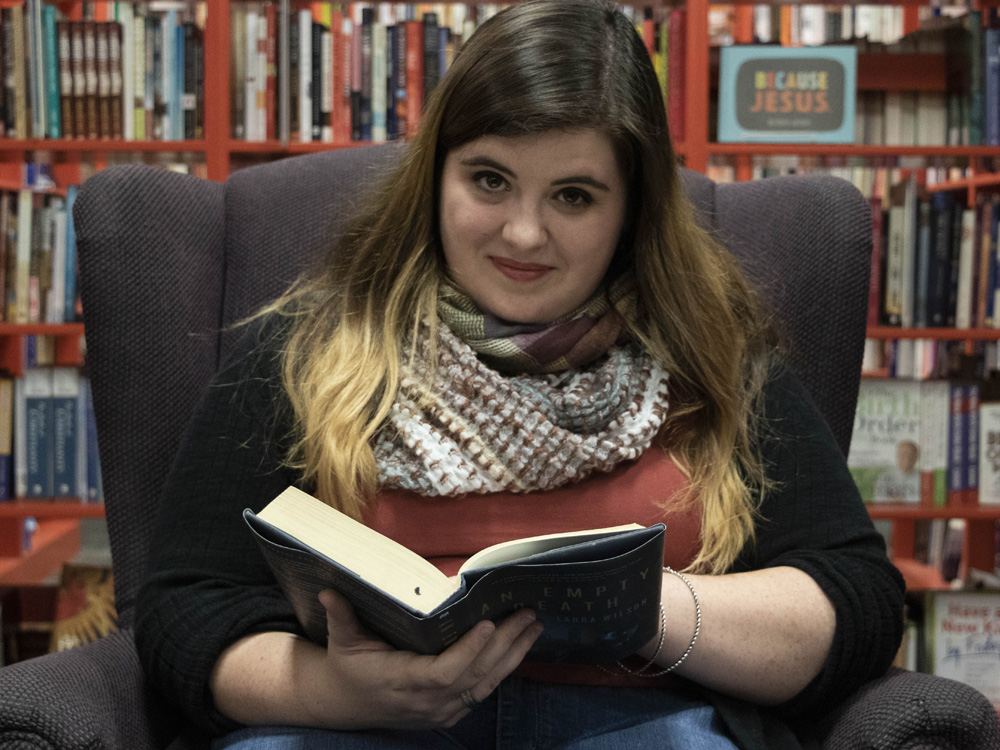 On September 27, author
On September 27, author 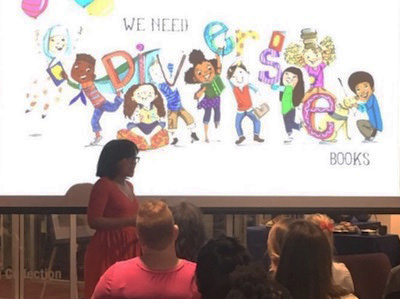 The evening talk attracted members of the community ranging from teenage fans to teachers and librarians, as well as local writers hoping for insight into the publishing industry.
The evening talk attracted members of the community ranging from teenage fans to teachers and librarians, as well as local writers hoping for insight into the publishing industry.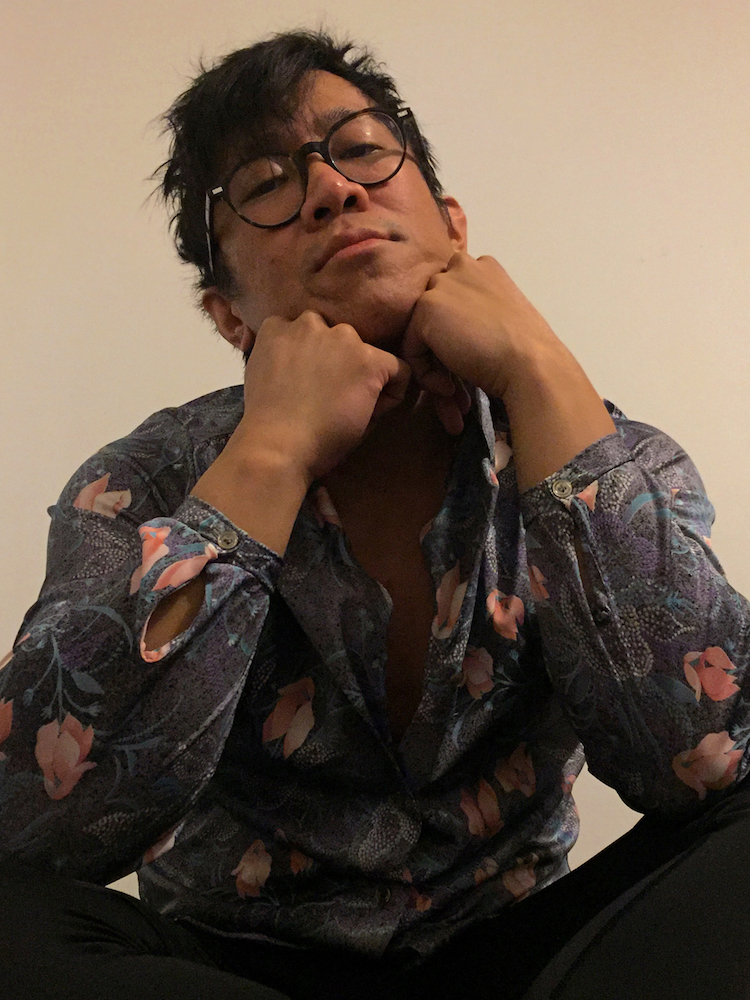 On October 27 I led a workshop at the Bureau of General Services–Queer Division (BGSQD), currently hosted by the Lesbian, Gay, Bisexual & Transgender Community Center in New York City. The workshop was organized by Sarah Sala, founder of the Office Hours poetry workshop, with support from Poets & Writers’ Readings & Workshops program. I haven’t led many workshops before, so this was an experiment of sorts. I called the craft class “The Image Is _____” and its focus, of course, was the image. A series of questions motivated this workshop:
On October 27 I led a workshop at the Bureau of General Services–Queer Division (BGSQD), currently hosted by the Lesbian, Gay, Bisexual & Transgender Community Center in New York City. The workshop was organized by Sarah Sala, founder of the Office Hours poetry workshop, with support from Poets & Writers’ Readings & Workshops program. I haven’t led many workshops before, so this was an experiment of sorts. I called the craft class “The Image Is _____” and its focus, of course, was the image. A series of questions motivated this workshop: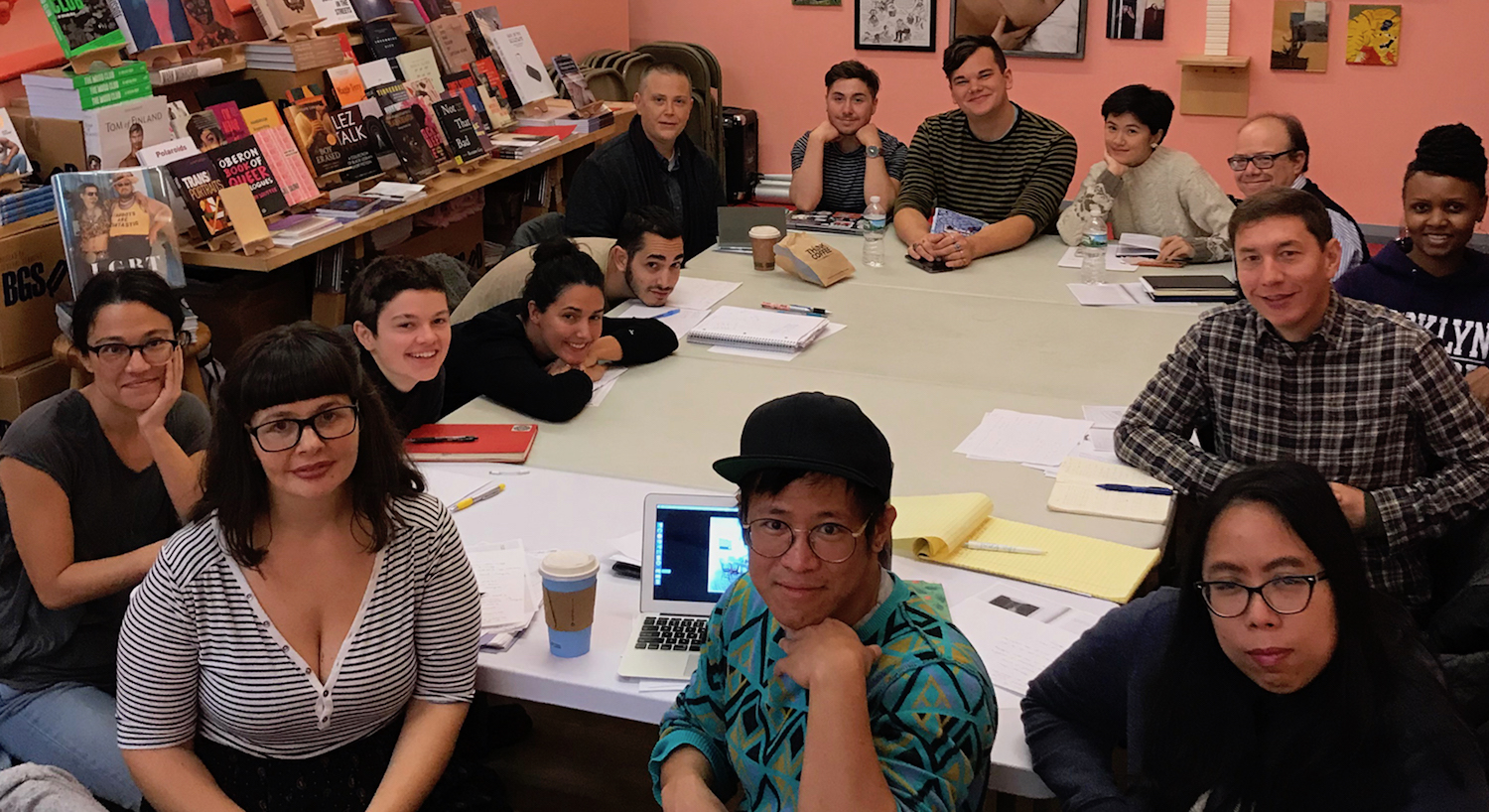
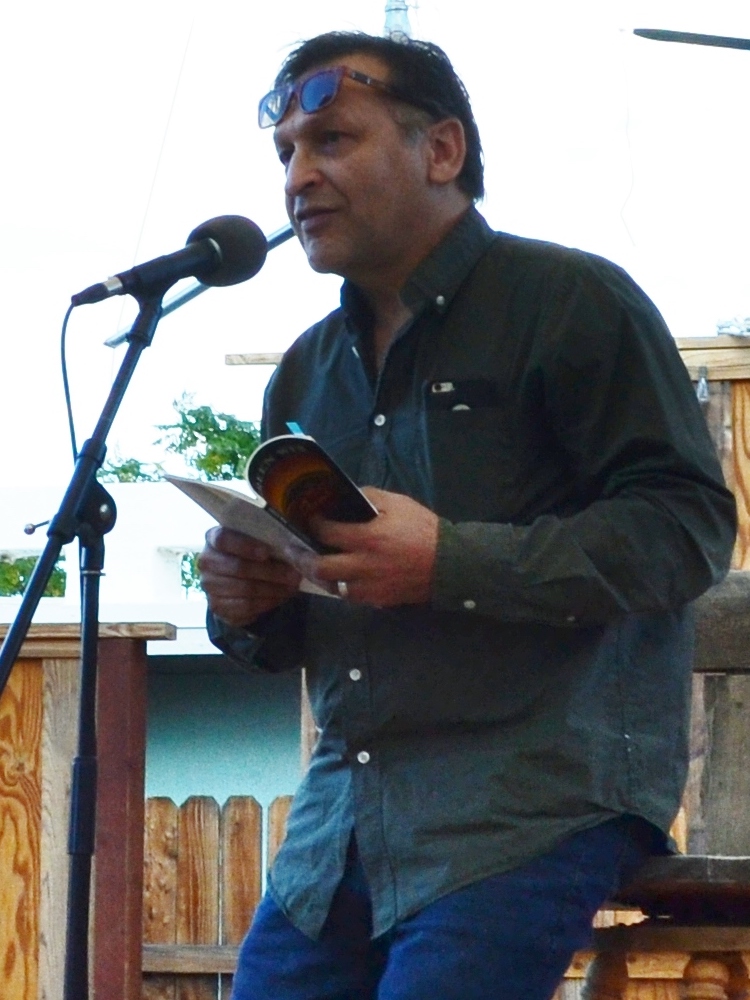 Each monthly issue of Cholla Needles is celebrated with an open reading and a featured poet. The readings take place outdoors in the beautiful desert of Joshua Tree, California, on the second Sunday of each month.
Each monthly issue of Cholla Needles is celebrated with an open reading and a featured poet. The readings take place outdoors in the beautiful desert of Joshua Tree, California, on the second Sunday of each month.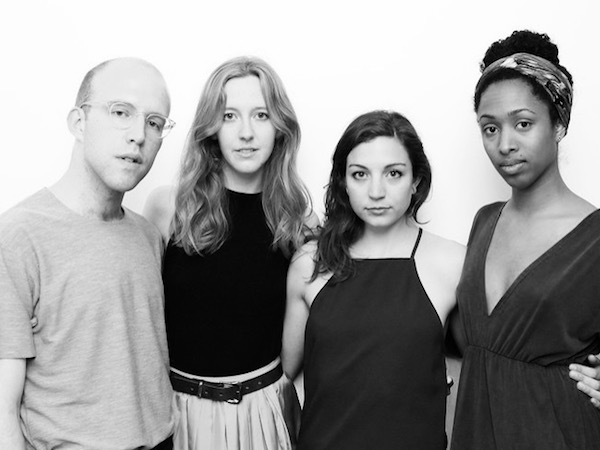 In early 2016, my friend Victoria Kornick and I wandered into an open house for a new coworking space in the Crown Heights neighborhood of Brooklyn, New York. We met the owner of Franklin Electric (now known as Work Heights), Sam Strauss-Malcolm, who expressed an interest in hosting free community events in the new space. We offered up the idea for a reading series, and in the following weeks, we kept in touch with Sam and got two other friends involved: Jordan Majewski and Jessica Modi. We all met while studying poetry as undergrads and had all ended up living in New York.
In early 2016, my friend Victoria Kornick and I wandered into an open house for a new coworking space in the Crown Heights neighborhood of Brooklyn, New York. We met the owner of Franklin Electric (now known as Work Heights), Sam Strauss-Malcolm, who expressed an interest in hosting free community events in the new space. We offered up the idea for a reading series, and in the following weeks, we kept in touch with Sam and got two other friends involved: Jordan Majewski and Jessica Modi. We all met while studying poetry as undergrads and had all ended up living in New York.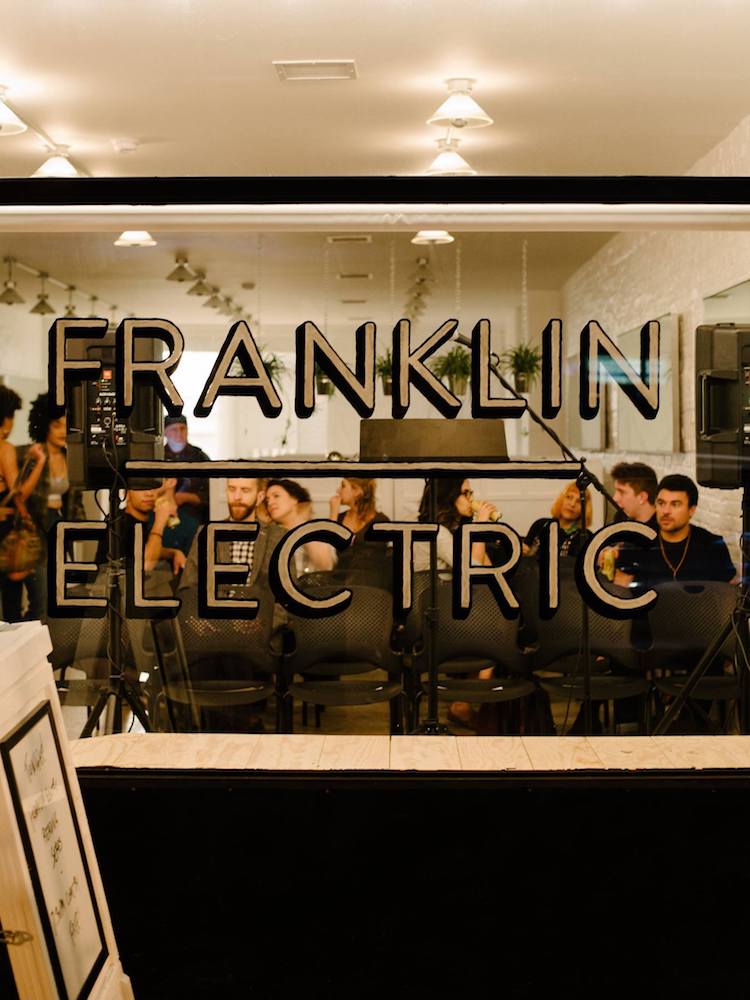 Memorable moments have included a choose-your-own-adventure nonfiction performance by Kristin Dombek and Stephanie Hopkins, an evening with readings from the entire staff of No Tokens Journal, and our two-year anniversary event last winter when we invited many previous readers back for quick, two-minute readings.
Memorable moments have included a choose-your-own-adventure nonfiction performance by Kristin Dombek and Stephanie Hopkins, an evening with readings from the entire staff of No Tokens Journal, and our two-year anniversary event last winter when we invited many previous readers back for quick, two-minute readings.